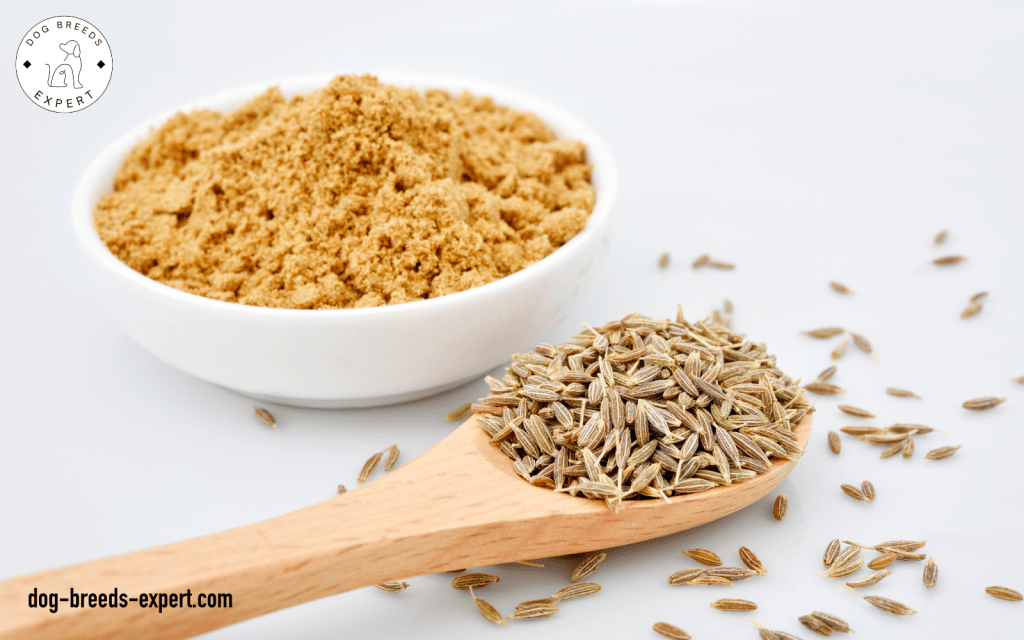More often than not, dogs do not want to eat anything other than meat and animal products, because they are carnivores. However, we all know that if they are sick they will eat certain types of grass, and cats do the same thing. What’s more, the food most pet owners buy for their dogs does have herbs and other plant matter in it to reduce the cost, enhance texture, and add flavor. So, what about cumin and cumin seeds?
The short answer is that dogs can eat cumin and cumin seeds. What’s more, there are some reasons to give dogs this particular herb on occasion. So, before moving on, let’s get to know cumin a bit better.
Can Dogs Eat Cumin?
Cumin is a flowering plant native to the Turanian region, which is part of Central Asia. It is part of the parsley family and is found in different cuisine traditions from all over the world. Cumin seeds are rich in iron and make a good natural iron supplement. It is often used to thicken food and enhance texture. As an iron supplement and texture enhancer, cumin is commonly given to dogs and it is also a common ingredient in many brands of dog food.
Is It Safe for Dogs to Eat Cumin?
Yes, it is okay for dogs to have cumin powder or cumin seeds. This common herb is used in foods all over the world and has a very mild spicy flavor to it. It is most useful for thickening food, which is why many dog food manufacturers use it. Of course, as a mild spice, some dogs may not like it at all. It is very mildly peppery in flavor, and that might be too much for many dogs since they usually never get anything spicy in their diets at all. If you give your dog cumin for the first time, give it in only very small amounts. Dogs may experience gastrointestinal distress as a result. Therefore caution is warranted.
Cumin is generally considered to be safe for dogs, in small amounts. It should always be mixed thoroughly into a dog’s food so that it is not too intense to avoid an unpleasant reaction. It should be noted that cumin contains aldehyde which can be dangerous to dogs in large amounts. If you are unsure whether or not cumin is right for your dog, talk to a veterinarian or animal nutritionist.
Health Benefits of Cumin for Dogs

Cumin has a number of health benefits for humans, and dogs as well. In fact, it is one of the few foods on earth that has almost no downsides for human health. While it may not be quite as good for dogs as it is for humans, it still has some potential benefits if used in moderation. These benefits include iron supplementation, improved digestion, weight loss, and improved metabolic disorders. It may also help improve high bad cholesterol in dogs.
Can Dogs Eat Cumin Seeds?
Yes, cumin seeds are okay for dogs to eat. Cumin seeds, like cumin powder, should be given to dogs only in small amounts. It can be difficult to get dogs to eat cumin seeds unless they are mixed with food. This is why we tend to use cumin powder for dogs. If a dog is deemed to need a particular medicinal benefit of cumin, then mixing powdered cumin with food is usually preferable. But the seeds are okay for dogs to eat if you can get them to eat cumin that way.
How to Feed Cumin to Dogs
While dogs can have cumin in powder form or as a raw seed, the best way to give it to them is by mixing it into their food in small amounts. Dogs do not naturally like the flavor of cumin all by itself, so in most cases, mixing it with their food will be necessary. Also, this has the benefit of protecting the animal from the spiciness of cumin, which could cause them to reject it or to be sickened by it.
Mix only small amounts into your dog’s food each day. For the benefits to develop for your dog, the cumin should be a regular part of their daily diet, but in amounts that the dog will not reject or be bothered by.
How Much Cumin to Give Your Dogs
A good rule of thumb is to always start with a very, very small amount whenever you give something new to your pets. We like to recommend using amounts that are even smaller than the standard recommendation. This is to protect the animal just in case they have an allergic reaction to it. For dogs who have never had cumin before, try mixing in half a teaspoon a day.
Alternatives to Cumin for Dogs
If your dog will not accept cumin or had had an adverse reaction to it, try the following alternatives:
- Tumeric
- Ginger
- Cinnamon
- Cardamom
- Parsley
- Rosemary



